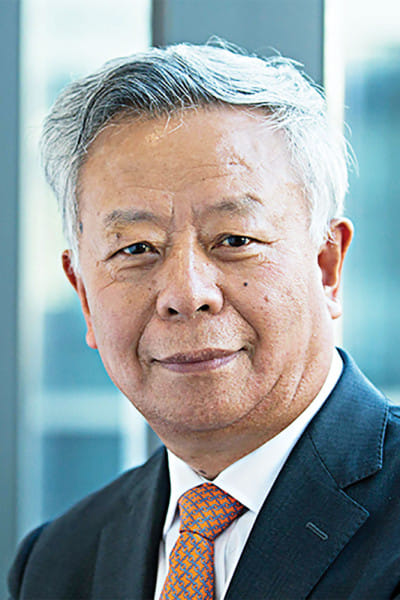AIIB to invest in infrastructure of tomorrow

Jin Liqun will retain his position as the president of the Asian Infrastructure Investment Bank (AIIB) for a second term, the multilateral development lender said yesterday.
"It has been a tremendous privilege to lead the AIIB during its foundational years," said Liqun, who will begin his second stint as AIIB president on January 16 next year.
The organisation invests in projects that improve the peoples' lives and is slowly establishing itself in global capital markets, he added.
The decision to re-elect Liqun was taken by the bank's board of governors during their fifth annual meeting held yesterday. Under his leadership, AIIB has grown from its 57 founding members to over 100 approved members from around the world.
The bank has also maintained the highest credit ratings with a stable outlook from the largest credit rating agencies, the organisation said in a statement.
The permanent observer status was also granted to the organisation by the United Nations (UN) in recognition of AIIB's relevance and contribution to the UN's development mandate, it added. Now AIIB plans to expand its investments from core infrastructure to the 'infrastructure of tomorrow', according to Liqun.
This means developing infrastructure that will tackle climate change, enhance connectivity within Asia and the rest of the world, mobilise private capital and bridge digital divides in the region, the AIIB president said.
"I look forward to continuing to serve our members and further contributing to the multilateral efforts to help build a more sustainable, more prosperous Asia," he added.
The AIIB has been involved in a number of development projects in Bangladesh.
For example, following the coronavirus outbreak in Bangladesh, the government sought $450 million in financial support from the lender to meet the country's emergency health expenditure and fund the massive stimulus packages aimed at helping the economy recover from the Covid-19 fallout.
Eventually, the AIIB approved a $250 million loan for Bangladesh that was co-financed by the Asian Development Bank.
Unlike other multilateral lenders, the AIIB typically lends to nations in the Indo-Pacific region to build infrastructure, regardless of the country's state of development.
In recent years, Bangladesh has performed exceedingly well with an annual average growth of 7.4 per cent over the last five years, DJ Pandian, vice-president for investment operations at AIIB, had said when the $250 million was approved.
"It is incumbent on the international community to come together to ensure that the country does not fall behind but continues to make strides in its development efforts amid the ongoing pandemic," he added.
The loan was aimed at mitigating the adverse effects of the pandemic on the country's poor and most vulnerable, particularly those affected by job losses in small and medium enterprises and the informal sector.
The programme also has specific targets to support at least 1.5 million workers, of whom at least half are women, in export-oriented industries by way of providing extended salary support.
Meanwhile, the development bank had also previously approved a $404 million loan to improve Bangladesh's intercity travel and cross-border connectivity.
"As the first stand-alone transport project supported by AIIB in Bangladesh, the project will allow the bank to gain experience in cross-border connectivity in South Asia," Pandian had said.
The project entailed upgrading the country's national highway between Sylhet and the Tamabil border crossing to improve overall commuter safety and reduce travel time by road.

 For all latest news, follow The Daily Star's Google News channel.
For all latest news, follow The Daily Star's Google News channel. 



Comments